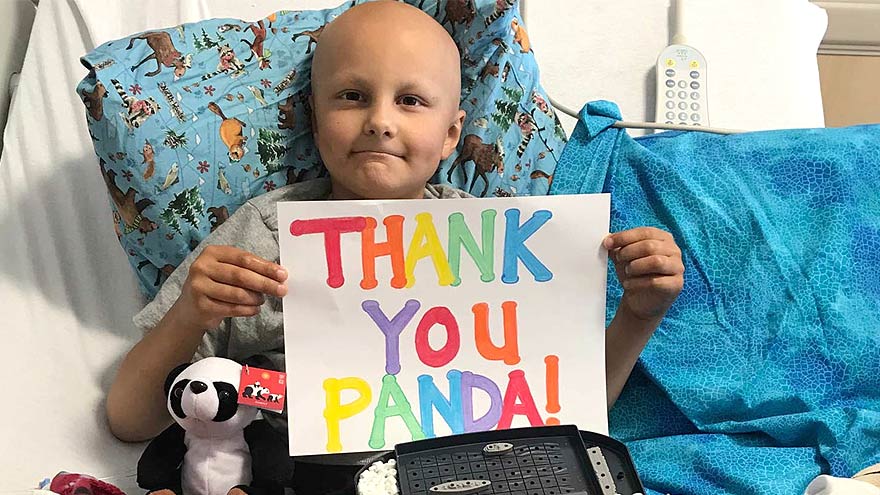Buscar
Results for 'medical assistant'
Clear-
8 Reasons to See a Cardiologist
While February is recognized as American Heart Month, it’s important to prioritize your heart health 365 days a year. Cardiologists play an integral role in our overall health and wellbeing – they are the experts when it comes to preventing and treating heart and vascular diseases. Dr. Jad Al Danaf of Renown Institute for Heart & Vascular Health shares eight reasons to visit a cardiologist. 1. Abnormal EKG The American Heart Association states an electrocardiogram, abbreviated as EKG or ECG, is a recording of the heart’s electrical activity to measure the rate and rhythm of the contractions in the upper and lower chambers of the heart. An EKG detects heart problems or abnormalities. If you have an EKG that shows abnormal results, you’ll want to see a cardiologist. An abnormal EKG can mean many things, such as irregular heart rate, heart rhythm abnormalities in the shape or size of the heart, medication side effects, and more. A cardiologist is most qualified to evaluate an abnormal EKG and determine the cause. 2. Immediate family history of heart disease or sudden cardiac death Knowing your family health history is essential to identify if you’re at risk for certain health conditions such as heart disease. For example, if you’re aware of anyone in your immediate family who had or has had heart problems or passed away from sudden cardiac death. In that case, you’ll want to discuss it with a cardiologist so they can determine if screenings, medications, or lifestyle changes are needed to help lower your risk. 3. Chest pain or shortness of breath with exertion If you have chest pain or shortness of breath that starts or worsens with activity, it may indicate a heart problem, and you should schedule a visit with a cardiologist immediately. Severe chest pain might be a sign of a heart attack or other serious medical emergency. If you’re experiencing severe chest pain, shortness of breath, or any other signs of a heart attack, call 911 immediately. 4. High blood pressure Have you had a high blood pressure reading? If so, it’s recommended to consult with a cardiologist for further evaluation. High blood pressure puts you at risk for heart disease and stroke, as uncontrolled high blood pressure can damage arteries, reducing blood flow and oxygen to your heart and brain.
-
Recursos para el duelo y la pérdida de un ser querido
Feelings of grief can take on many forms and can occur in reaction to many situations, including the death of a loved one or a medical diagnosis for yourself or someone close to you. It is important to remember that this reaction is entirely natural, and many people who experience grief find outside help to be a valuable part of the healing process. Below is a list of both local and national grief and bereavement resources for all ages and specificities. If you or someone you know is experiencing grief, the trained professionals below are here to help. Solace Tree Support groups for children and teens (ages 3 to 18), young adults and their family members. For more information visits solacetree.org/grief-programs or call 775-324-7723. Healing Minds Counseling services for those coping with the loss of a loved one or major life change. For more information visit healingminds.com/grief-counseling-reno-nv or call 775-448-9760. Circle of Life Hospice Support groups open to the community held the first and third Tuesday of every month. Fore more information visits colhospice.com/bereavement-and-spiritual-care or call 775-827-2298. Summit View Hospice Grief and bereavement support open to the community-groups, memorials and by mail. For more information visit summitviewhospice.com or call 775-636-9598. The Compassionate Friends Monthly support group on the second Monday of each month for families after a child dies. Fore more information visit facebook.com/TheCompassionateFriendsofReno, compassionatefriends.org or call 775-750-7005. Healing for Survivors of Suicide Links and resources for those who have lost a loved one to suicide. For more information visit survivingsuicide.com GriefShare Grief recovery support groups meeting weekly both in-person and online with options in Reno/Sparks, Carson City and rural cities. For more information www.griefshare.org National Alliance for Grieving Children Resources for parents and caregivers to help children navigate the challenges of bereavement and grow into healthy adults. For more information visit nacg.org/resources-and-support/ Mourning Hope Grief Center Grief support groups, counseling, resources and COVID-19 support for children, adults and families before and after a death loss. For more information visit mourninghope.org Crisis Support Services of Nevada 24/7, free, confidential and caring support to people in crisis across Nevada and the U.S. For more information visit cssnv.org, call 775-784-8090 or text CARE to 839863 National Alliance on Mental Illness-Warmline A stigma-free, non-crisis phone service you can call or text that is staffed by trained peers in recovery. For more information visit namiwesternnevada.org/resources/ or call 775-241-4212. Vitas Healthcare Grief and bereavement resources and support groups both virtual and phone-in. For more information visit vitas.com/family-and-caregiver-support or call 866-489-0583. St. Mary’s - Hospice We Promise Resources on grief for all groups including children to adults, trauma, caregivers and more. For more information visit hospicewepromise.com/topics/grief or call 775-525-6700. Mountain View Mortuary Grief support and tools available to assist you in your healing journey including “365 Days of Healing” email list for daily support and comfort. For more information visit mountainviewmortuary.net/resources/grief-support or call 775-788-2199 Sesame Street – Helping Kids Grieve Discover games, videos and more on topics important to you and your child. For more information visit sesamestreetincommunities.org/topics/grie Trauma Intervention Program-Northern NV A national non-profit organization of volunteers dedicated to ensuring those emotionally traumatized receive assistance. For more information visit tipnnv.org/about-tip/resources Pregnancy & Infant Loss Support Organization A non-profit organization dedicated to the support of families who have lost a baby through miscarriage, stillbirth or neonatal death. For more information visit pilsos.org Caring Info A program of the National Hospice & Palliative Care Organization providing free resources to help people make decisions about end-of-life. For more information visit nhpco.org/patients-and-caregivers/
-
6 Healthcare Action Items for the LGBTQIA+ Community
© Niyazz via Canva.com Every patient, regardless of how they may identify, greatly benefits from preventive healthcare and early detection. Members of the LGBTQIA+ community face unique considerations when it comes to their health, and a proactive approach to preventive screenings and vaccines is important in order to address their individual health needs. Dr. Karen Thiele, Family Medicine Physician with University Health and Assistant Professor of Family and Community Medicine at the University of Nevada, Reno School of Medicine, breaks down key steps that LGBTQIA+ patients should take to safeguard their health. PrEP and PEP Pre-exposure prophylaxis (PrEP) is a strategy to prevent human immunodeficiency virus (HIV) infection. It is an important measure for those who are HIV-negative but may be at risk of contracting it. The highest risk sexual practice is receptive anal intercourse, due to the relative fragility of rectal tissue. This medication can stop HIV from spreading in the body and help patients maintain their HIV-negative status. PrEP is available in both pill form, which is taken every day, and injection form, of which the first two injections are initiated one month after another while all other injections are initiated every two months. Post-exposure prophylaxis (PEP) is an antiretroviral drug regimen taken after potential HIV exposure to prevent an HIV-negative individual from converting to HIV-positive status. PEP is only for emergency situations and must be started within 72 hours of exposure – sooner is always better than later – and must be taken for 28 days. PrEP and PEP are available in many ways, including visiting your primary care provider (PCP) or an urgent care location. HPV Immunization All genders and identities can protect themselves against human papillomavirus (HPV), a sexually transmitted infection (STI) that can lead to the risk of cervical, mouth, head, neck, throat, anal, vaginal, penile and vulvar cancers. HPV is so common that nearly all sexually active people, regardless of sexual orientation and practices, will be exposed at some point in their lifetime. The HPV vaccine (common brands include Gardasil and Cervarix) is a safe and effective method to prevent HPV, according to the Centers for Disease Control and Prevention (CDC). This vaccine protects against infections that can lead to HPV-related cancers and precancers, as well as genital warts. While patients should start receiving the vaccine at 9 years old years old, unvaccinated adults up to the age of 45 can also receive the vaccine through their PCP – better late than never! STI Testing Sexually-transmitted infections form from bacteria, viruses or parasites that can be transmitted by person-to-person sexual contact through semen, vaginal, blood and other bodily fluids. According to the U.S. Department of Health and Human Services, there are more than 20 million estimated new STI cases across the nation each year. Luckily, most STIs are preventable. Annual STI testing for HIV, gonorrhea, chlamydia and syphilis is important to stay on top of your sexual health. Because these STIs may sometimes have no symptoms, screening is recommended regularly and with any change in sexual partners. Depending on the specific condition, tests for these infections include urine, swab and blood tests. Speak with your primary care provider on a screening schedule that works best for you. Prostate Exams Prostate exams look for early signs of prostate cancer in patients who still have a prostate. The CDC recommends those who are at least 55 years old get regular prostate screenings; however, for patients with a family history of prostate cancer, screenings may be recommended as early as 45 years old. These exams are done via two common methods – a prostate specific antigen (PSA) blood test and a digital rectal examination (DRE). Your provider can help you determine your risk and when you should start getting screened. Pap Tests and Pelvic Exams Patients of all genders who have a cervix, uterus, vagina and/or ovaries will benefit from regular pelvic exams and Pap screenings. A pelvic exam consists of a provider looking inside the vagina and at the cervix for anything unusual. A Pap test, also known as a Pap smear, involves your provider using a small, soft swab to collect cervical cells to check for early signs of cancer. Generally speaking, people with these organs should have a Pap test every three years starting at age 21 through the age of 30. After age 30, patients should receive a Pap test with HPV co-testing every five years until age 65. These recommendations are changing based on new research, so it is important to have a conversation with your PCP about the current guidelines so you can make an informed choice about what schedule you should follow. A gynecologist or your primary care provider can counsel you and perform these screenings. Mammograms and Breast Exams People with breast tissue, especially dense breast tissue, are at risk for breast cancer, and regular breast screenings are your best line of defense. At-home breast self-exams are the first step – you will want to check your breasts for any lumps, changes, fluid leaks, irregular tissue thickening or anything else that feels unusual. The Breast Cancer Risk Assessment tool, provided by the National Cancer Institute, is a good place to start to identify your risk. Talk with your primary care provider about the risks and benefits of starting screening at age 40 so you can make an informed decision about when to start. If you have any family history of breast or ovarian cancer, your PCP will offer you genetic testing for BRCA 1 and 2 mutations. Nevadans over the age of 18 can also get BRCA genetic test for free by enrolling in the Healthy Nevada Project. Mammograms are important screening tools, but for a significant portion of people with breast tissue, density of the breast tissue may make mammograms less helpful in detecting cancer. Your primary care provider can help you decide what additional imaging (such as breast ultrasound) might be best for you.
Read More About 6 Healthcare Action Items for the LGBTQIA+ Community
-
Panda Cares Center of Hope at Renown Children's Hospital
When you have an ill child in the hospital, it is a stressful event. And Panda Express is helping local families support children who need special care. Their generous donation provides much-needed equipment, programs, and resources via the new Panda Cares Center of Hope, Renown Children’s Specialty Center. Their partnership directly benefits patients and their families! The ‘Panda Cares Center of Hope, Renown’s Children’s Specialty Center’ In fact, this new center provides care to not only children, but also comprehensive support to the entire family. Similarly, it creates an environment that reduces stress, promotes healing, and provides a superior patient and family experience. This facility upholds Panda Express’ mission, vision, and values and its four pillars: to directly help fund the emotional, mental, physical, and spiritual needs of children. This center, the first-ever in northern Nevada, will provide care for children who have chronic conditions. In particular, it offers ongoing treatment, health management, and specialty medical services, including: Nephrology Endocrinology Neurology Pulmonary Infectious Diseases Medical Genetics Adolescent Medicine How You Can Help! When you order from Panda Express, you can opt to round up your change, which will help support programs and services, such as the Center of Hope for Renown Children’s Hospital. Order Online A Partnership for Health & Education of Underserved Youth This partnership allows Renown Children’s Hospital to continue to strengthen regional services and increase Panda’s visibility within our growing community. Last year, 21,930 sick children received care from Renown Children’s Hospital. To date, Panda Express has raised $449,200 in financial support to assist us in providing health and education to every child, regardless of illness, injury, insurance, or ability to pay. Panda Express funds have already supported: Giraffe omni beds for the NICU Ultrasound machine for the Children’s ER Panda warmers and a hand held Accuvein machine Child Life Program to support sick patients and families Meeting room in the Children’s Specialty Center In kind donations, volunteer time and support of local events such as the University of Nevada Reno, Wolf Pack Dance Marathon
Read More About Panda Cares Center of Hope at Renown Children's Hospital
-
Navigating Renowns Cancer Care Resources Your Essential Guide
Cancer is challenging, but no one has to go through it alone. Patients and their loved ones can navigate the journey towards healing and recovery with the proper support and resources from Renown Health. When faced with a cancer diagnosis, access to reliable and comprehensive cancer resources is key. These resources provide vital information, support, and guidance for patients, caregivers and loved ones throughout cancer treatment and recovery. Cancer Resources Breast Cancer Newly Diagnosed Orientation Class Cancer Support Groups Caregiver Support General Cancer Support Group Lymphedema & Physical Therapy Men’s Prostate Cancer Support Group Newly Diagnosed Breast Cancer Workshop Smoking Cessation Spiritual Center Activities & Programs Sterling Silver 55+ Club Facebook Group At Renown and in collaboration with community partnerships, we offer a variety of resources and specialty care programs focused on improving the quality of life after cancer including: Cancer support groups play a crucial role in providing emotional, psychological, and practical assistance to those affected by cancer These groups often consist of individuals who have been through similar experiences and can offer guidance, empathy, and understanding. They provide a safe space for individuals to share their feelings, concerns, and experiences with others who truly understand what they are going through.
Read More About Navigating Renowns Cancer Care Resources Your Essential Guide
-
Tratamiento de control de la vejiga para mujeres: ¿cuál es la opción correcta para usted?
Although going to the bathroom is not a typical conversation among women and their doctors, it’s an important one. It is a topic you may want to discuss with a urogynecologist, a physician who diagnoses, manages and treats pelvic health conditions in women. Kerac Falk, MD, a urogynecologist and assistant professor at the University of Nevada, Reno and Renown Health discusses overactive bladder in women and how to treat it. According to the National Institutes of Health, about 1 in 4 women struggle with pelvic health conditions, with over 40 percent of women over age 60 experiencing problems. While these conditions may be common, they shouldn’t just be accepted as a normal part of getting older. In fact, many women don’t think of urine leakage as a medical problem, and only 1 in 3 women with incontinence seek care. So, while these conditions may be common, they shouldn’t just be accepted as a normal part of getting older. There are excellent treatment options that can significantly improve the quality of life. Overactive Bladder Symptoms in Women: As your body changes and ages, so does your pelvic health. Whether you just had a baby, are experiencing urgency issues or find you cannot go about your daily routine, sneeze or laugh without leaking urine – you’re not alone. An overactive bladder, also known as OAB, is more than feeling an urgent need to go to the bathroom. It can also include the following: Incontinence or lack of control over urination Waking up in the middle of the night to empty your bladder Going to the bathroom often, even every 30 to 60 minutes Symptoms of OAB can lead to a decreased quality of life, feeling as if you cannot go about your normal daily routine, or even become hazardous, increasing the risk of trips, falls, and bone fractures. Various Treatments are Available: Behavioral management (eliminating coffee, soda and alcohol which irritate your bladder) Pelvic floor physical therapy to optimize nerve and muscular function and coordination to prevent leakage Medications including tablets and local estrogen replacement Pelvic nerve stimulation and reprogramming treatments Botox to relax the bladder muscle Solutions for an Overactive Bladder: Simply put, OAB is a nerve and muscle problem, so the bladder needs to calm down. Although there is no underlying reason for OAB, some underlying conditions may exist, such as: High blood pressure Recent trauma Neurological conditions (such as stroke and multiple sclerosis) Lifestyle and non-invasive measures can usually reduce symptoms by as much as 50%, significantly improving quality of life. However, if these measures do not help your OAB, further bladder testing may be needed. Dr. Falk notes that “every patient has a unique situation and set of symptoms. My job as a urogynecologist and pelvic floor subspecialist is to work as a team with each individual to figure out what’s going on and design the best treatment approach that fits your needs and goals, whether that is conservative or with more advanced procedures. The outcome we are working towards is improved quality of life.” If you are bothered by your bladder, the best thing you can do is bring this up with your primary care doctor or gynecologist to begin to discuss solutions
Read More About Bladder Control Treatment for Women – What’s Right for You?
-
Alzheimer's Safety Tips for Caregivers to Know
November is National Alzheimer’s Disease Awareness Month. At Renown Health, we know that Alzheimer's safety for your loved one is a priority, as the symptoms can sometimes lead to unsafe situations. We asked Dr. Jonathan Artz – a neurology physician with Renown Health and an assistant professor of clinical neurology at the University of Nevada, Reno School of Medicine – for tips on keeping loved ones safe and secure. According to the Alzheimer’s Association, Alzheimer’s disease affects safety in various ways, specifically due to body and brain adjustments. These changes can include: Judgment, including forgetfulness Sense of place – getting lost on the way home Behavior – being suspicious or fearful Body difficulty – losing balance Sensing ability – noticeable sensitivity in hearing, seeing or temperature Dr. Artz gives us four major tips to ensure your loved one’s safety as you both navigate this disease together. Watch for Wandering Those experiencing Alzheimer’s disease tend to wander and get lost. Try the following tips to reduce the risk of wandering: Get your loved one an ID bracelet and have them wear it at all times. You can also enroll your loved one in “Wandering Support.” Install door chimes so you know when exterior doors are open. Ask neighbors to call you if they see your loved one out alone. Go with your loved one when they insist on leaving the house. Don’t argue or yell. Instead, use distraction or gentle hints to get them to return home. Discourage Driving Driving can be unsafe for someone with this disease. With this in mind, ask a doctor whether it’s safe for your loved one to drive. For example, on a case-by-case basis, there are certain situations where doctors are required to report individuals with particular cognitive impairments, wherein a form of a driving assessment will be recommended. Limit access to the car. Keep the keys with you or lock them away. Ask an authority figure, such as an insurance agent or a doctor, to tell them not to drive. Adult-Proof Your Abode A simple living space is a safe living space. This means reducing clutter and removing any issues that may pose a safety concern. You may also want to get advice from an occupational therapist (home safety expert). Keep in mind that some changes may not be needed right away. Focus on major safety concerns first. Try the following tips: Add lighting (or glow-in-the-dark tape) to brighten dark areas, including stairways and halls. Use color contrast or texture indicators for dials, knobs and appliance controls. Remind your loved one not to carry items while walking to avoid a fall. Remove sharp objects from drawers and countertops. Avoid using small throw rugs or doormats, as they are easy to trip on. Move frequently used items so that they are easy to reach. Lock away alcohol and tobacco products, as they are not recommended for dementia patients. Install handrails in the shower, tub and near the toilet. Bathroom falls are especially common. Adjust the setting on your hot water heater so water does not scald. Those with Alzheimer’s can lose their sensitivity to temperature. Move and lock up hazardous chemicals and cleaning supplies, such as bleach and insecticides. Disable and remove guns or any weapons. Supervise any medication taken by your loved one. Promote a Positive & Healthy Lifestyle Continually emphasize the strengths of your loved one by promoting participation in meaningful activities, wellness visits and healthy habits to help them improve their well-being. Here are some ways to keep them physically and mentally active: Maintain regular vision and hearing screenings and make necessary adaptations. Establish a routine for daily activities. Encourage participation in self-care and leisure activities. Work with your loved one’s doctor to establish a healthy diet. Ensure proper hydration. It may help to set reminders for your loved one to drink fluids. Encourage regular exercise. Exercise delivers oxygen to the brain, improving brain health. Promote good sleep habits. Good quality sleep can increase overall brain health and has been associated with improving memory, attention and concentration. Resources and support are available with the Renown Memory Disorders Program. Providers within this program are specifically dedicated to treating several different memory-related disorders. Memory Disorders Resources & Support.
Read More About Alzheimer's Safety Tips for Caregivers to Know






